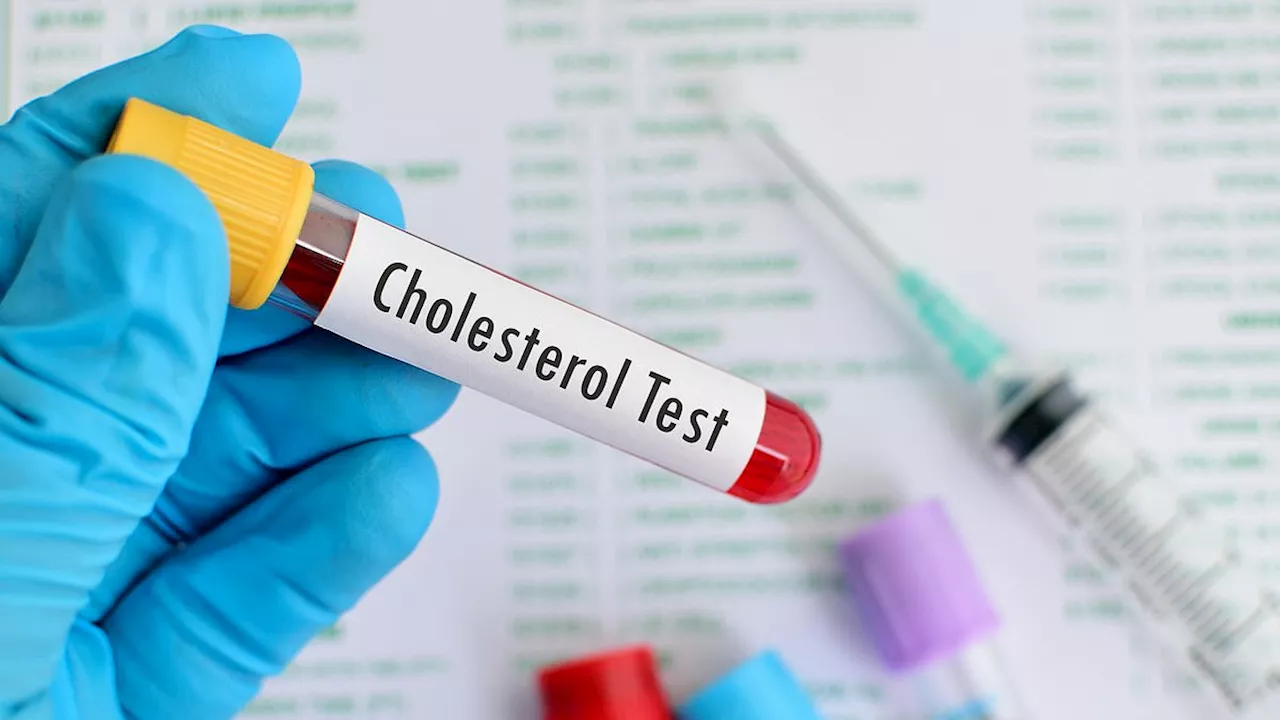A new study suggests that high levels of HDL cholesterol, often referred to as 'good' cholesterol, may actually increase the risk of developing glaucoma, an eye condition that can lead to vision loss.
Recent research has challenged the long-held belief that high-density lipoprotein cholesterol ( HDL ), often referred to as 'good' cholesterol, is always beneficial. Studies suggest that elevated levels of HDL cholesterol may actually increase the risk of glaucoma, an incurable eye condition that can lead to vision loss .This surprising finding comes from a study of nearly 7,000 British participants tracked over 14 years.
Researchers discovered that individuals with higher HDL levels were 10 percent more likely to develop glaucoma compared to those with the lowest levels. Conversely, participants with higher levels of low-density lipoprotein (LDL) cholesterol, typically considered 'bad' cholesterol, showed an 8 percent reduced risk of developing glaucoma. However, this association with HDL cholesterol and glaucoma risk was observed only in individuals aged 55 and older.While HDL cholesterol has been recognized for its role in protecting the heart by removing cholesterol from arteries and transporting it to the liver for removal, this new research suggests a more complex relationship. Cholesterol, a vital substance for various bodily functions, can accumulate in the blood due to unhealthy lifestyle choices like a high-fat diet, lack of exercise, obesity, smoking, and alcohol consumption. Elevated LDL cholesterol can lead to blocked blood vessels, increasing the risk of heart problems and strokes. This study, published in the British Journal of Ophthalmology, calls for further investigation into the mechanisms behind the observed link between HDL cholesterol and glaucoma risk. It also suggests a potential need for reevaluating cholesterol management strategies for individuals at risk for glaucoma
Cholesterol HDL Glaucoma Eye Health Vision Loss Risk Factors
United Kingdom Latest News, United Kingdom Headlines
Similar News:You can also read news stories similar to this one that we have collected from other news sources.
 Good Cholesterol May Increase Risk of Glaucoma, While Bad Cholesterol May Show Protective EffectA large study suggests that high levels of 'good' cholesterol (HDL) may be linked to an increased risk of glaucoma, particularly in individuals over 55. Conversely, 'bad' cholesterol (LDL) may be associated with a reduced risk. These findings challenge conventional understanding of cholesterol's impact on eye health.
Good Cholesterol May Increase Risk of Glaucoma, While Bad Cholesterol May Show Protective EffectA large study suggests that high levels of 'good' cholesterol (HDL) may be linked to an increased risk of glaucoma, particularly in individuals over 55. Conversely, 'bad' cholesterol (LDL) may be associated with a reduced risk. These findings challenge conventional understanding of cholesterol's impact on eye health.
Read more »
 £1 Supermarket Juice Could Help Lower Cholesterol, Says TV DoctorA TV doctor has revealed a surprisingly affordable way to potentially lower your cholesterol: a £1 supermarket juice. The expert explained the different types of cholesterol, emphasizing the importance of HDL (good) cholesterol. High cholesterol is a prevalent issue, affecting millions, and is often linked to lifestyle factors such as diet, exercise, and smoking. While medication might be necessary in some cases, the doctor highlighted the benefits of increasing fiber intake through whole grains and oats, which contain beta-glucan, a soluble fiber known to reduce cholesterol levels.
£1 Supermarket Juice Could Help Lower Cholesterol, Says TV DoctorA TV doctor has revealed a surprisingly affordable way to potentially lower your cholesterol: a £1 supermarket juice. The expert explained the different types of cholesterol, emphasizing the importance of HDL (good) cholesterol. High cholesterol is a prevalent issue, affecting millions, and is often linked to lifestyle factors such as diet, exercise, and smoking. While medication might be necessary in some cases, the doctor highlighted the benefits of increasing fiber intake through whole grains and oats, which contain beta-glucan, a soluble fiber known to reduce cholesterol levels.
Read more »
 Tomato Juice May Help Lower Cholesterol, Experts SayDrinking unsalted tomato juice could help reduce cholesterol levels, according to experts. Tomato juice is rich in lycopene, a chemical that gives tomatoes their red color, and higher levels of lycopene can help prevent plaque from building up in the arteries.
Tomato Juice May Help Lower Cholesterol, Experts SayDrinking unsalted tomato juice could help reduce cholesterol levels, according to experts. Tomato juice is rich in lycopene, a chemical that gives tomatoes their red color, and higher levels of lycopene can help prevent plaque from building up in the arteries.
Read more »
 Chocolate and Almonds May Help Lower 'Bad' CholesterolA new study suggests that pairing dark chocolate with almonds could significantly reduce 'bad' cholesterol levels in just four weeks.
Chocolate and Almonds May Help Lower 'Bad' CholesterolA new study suggests that pairing dark chocolate with almonds could significantly reduce 'bad' cholesterol levels in just four weeks.
Read more »
 Airport Noise May Increase Heart Attack RiskA new study suggests that people living near airports may be up to four times more likely to have a heart attack due to exposure to aircraft noise. Researchers found that those living in high noise areas had stiffer and thicker heart muscles, which are less efficient at pumping blood. This could lead to a higher risk of heart attack, life-threatening heart rhythms, or stroke.
Airport Noise May Increase Heart Attack RiskA new study suggests that people living near airports may be up to four times more likely to have a heart attack due to exposure to aircraft noise. Researchers found that those living in high noise areas had stiffer and thicker heart muscles, which are less efficient at pumping blood. This could lead to a higher risk of heart attack, life-threatening heart rhythms, or stroke.
Read more »
 Ventilation and air cleaners may increase aerosol spread in hospitalsIncreased use of ventilation and air cleaners, designed to mitigate the spread of viral infections in hospitals, is likely to have unpredictable effects and may cause viral particles to move around more, according to a new study from researchers at UCL and UCLH.
Ventilation and air cleaners may increase aerosol spread in hospitalsIncreased use of ventilation and air cleaners, designed to mitigate the spread of viral infections in hospitals, is likely to have unpredictable effects and may cause viral particles to move around more, according to a new study from researchers at UCL and UCLH.
Read more »
